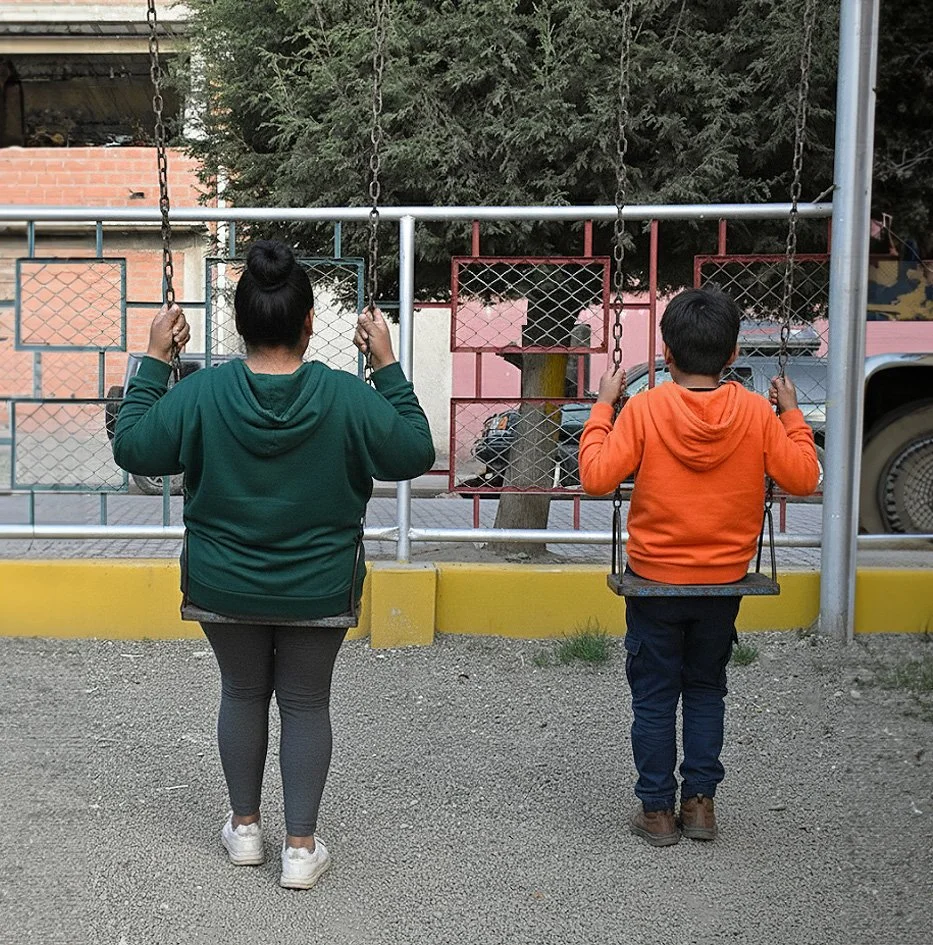
What would it feel like to live with a secret so heavy that it threatened to break the bonds with your family? For many women who have experienced sexual exploitation, this is a daily reality. Scholars describe it as living a “fragmented self” or “double life” — one role for survival, another for family — with the constant fear of exposure and the stigma that follows (Farley, 2004; Hedin & Månsson, 2004).
Nadia, a single mother of three, knows this reality all too well.
After leaving exploitation, she worked tirelessly to build a new life. With courage and determination, she started her own small business making handmade vests and even saved enough to buy her own sewing machine. It was a step toward independence, dignity and hope. But her journey has been anything but easy.
Her three children have grown up in the shadow of her struggle. All of them have been part of Project Suma’s Children’s Program. At first, they arrived timid and withdrawn, shaped by the weight of their mother’s overprotection and the fear that surrounded their home. Over time, through healthy relationships with our educators, they began to open up, build confidence and adapt socially. Today, her eldest is already in university, her middle child dreams of beginning soon but must wait until Nadia can gather enough resources, and her youngest continues to benefit from the program’s safe environment.
Family tensions, however, remain a deep source of pain. Recently, Nadia’s mother — her children’s grandmother — threatened to reveal Nadia’s past and even told her eldest son about it. Although he chose not to believe it, the conflict has strained family ties and left Nadia with a smaller, more fragile circle of support. For Nadia, the fear of stigma is not abstract — it touches her home, her relationships and her children’s future.
On top of this, Bolivia’s ongoing economic crisis has hurt her sales. The lack of stability makes running a small business even harder, and her dream of sustaining her children’s education feels increasingly heavy. Yet despite it all, Nadia holds onto her faith in God and her belief that things will improve.
Nadia’s story reminds us of an often unseen truth: leaving exploitation does not erase the wounds, the stigma or the long-term challenges. Survivors need more than just an exit — they need accompaniment that embraces every dimension of their healing: emotional, relational, spiritual and economic.
At Project Suma, we walk alongside survivors like Nadia as they rebuild their lives step by step. And we know we cannot do this alone. Your support — through prayers, generosity and sharing these stories — ensures that women like Nadia and their children do not have to walk this journey in silence or fear.
Will you stand with Nadia and many others as they choose dignity and hope over fear?
Research note: Farley, M. (2004). “Bad for the Body, Bad for the Heart”: Prostitution Harms Women Even if Legalized or Decriminalized. Violence Against Women, 10(10), 1087–1125; Hedin, U.-C., & Månsson, S.-A. (2004). The Importance of Ties: Children and the Problem of Double Life in Prostitution. Journal of Social Policy, 33(4), 573–590).
